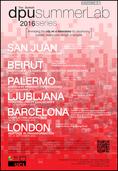rigenerazione urbana settlements surveys & analyses urban policies urban development dottorati historic centers urban growth city strategic planning local plans energy sociology social exclusion/integration public spaces urbanism cities premi tesi di dottorato heritage maps urban market welfare downtowns architecture Communication
29 August 2016 – 24 September 2016
DPU SummerLab 2016 Series | San Juan, Beirut, Palermo, Ljubljana, Barcelona, London
London, UK
DEADLINE | July 4th 2016
DPU - Bartlett Development Planning Unit
UCL - University College of London
DPU SummerlLab
The DPU summerLab was born out of the MSc Building & Urban Design in Development (BUDD) course in 2009 and expanded in 2010 into a wider The Bartlett Development Planning Unit initiative.Drawing on the progressive action-research and practice-based ethos of the DPU in collaboration with local partners in various host cities, the workshop series aims to leverage the reality of the city as a laboratory for developing socially responsive design measures. It is intended to provoke, stimulate, and reconsider the role of designers in promoting spatial justice.
Focusing on cities’ contested spaces, their mutable landscapes and visible/invisible thresholds, the DPU summerLab asserts that – to appropriately engage in this arena – a critical recalibration of (architectural and urban) design practice is required: every year’s workshop series lies within, and wants to contribute to, this paradigmatic shift.
DPU summerLab 2016 series seeks to establish a unique rotating platform for in situ immersion and experimentation where the boundaries of spatial agency and design processes are actively pushed, hinging upon critical analysis and design research.
THE SCHEDULE OF THE DPU SUMMERLAB 2016 SERIES IS:
San Juan | 29 August - 3 September
"Reactivating Disperse Urbanisms"
Beirut | 5-10September
"Riverside Ecologies and Contested Waterscapes"
Palermo | 5-10 September
"Emergent Migrant Topographies"
Ljubljana | 12-17 September
"Disputing empty landscapes"
Barcelona | 19-24 September
"Conflicting Diversities"
London | 19-23 September
"Heritage in Transformation"
FEES
The international participation fee for each workshop is £400. For currently enrolled DPU students (2014-15) and DPU alumni the fee is £300. Discounted fees apply for participants that intend to register for multiple workshops and for group applications (5 people or more).Please note these fees do not include travel or accommodation, though advice and local information will be provided.
APPLICATIONS
• The closing date for applications is Monday 4 July 2016.
• To apply, please e-mail a CV and letter of motivation along with the application form to dpusummerlab@ucl.ac.uk.
• The application form can be downloaded Here in Word format. Although not required, a design portfolio may be submitted with the application [PDF 5mb max].
INFO CONTACT
• DPU SummerLab 2016 series Webpage
• EMAIL | dpusummerlab@ucl.ac.uk
29 August- 3 September
San Juan | "Reactivating Disperse Urbanisms"
In collaboration with: Casa Taft 169, La Maraña, Pensar Urbano, Universidad de Puerto Rico
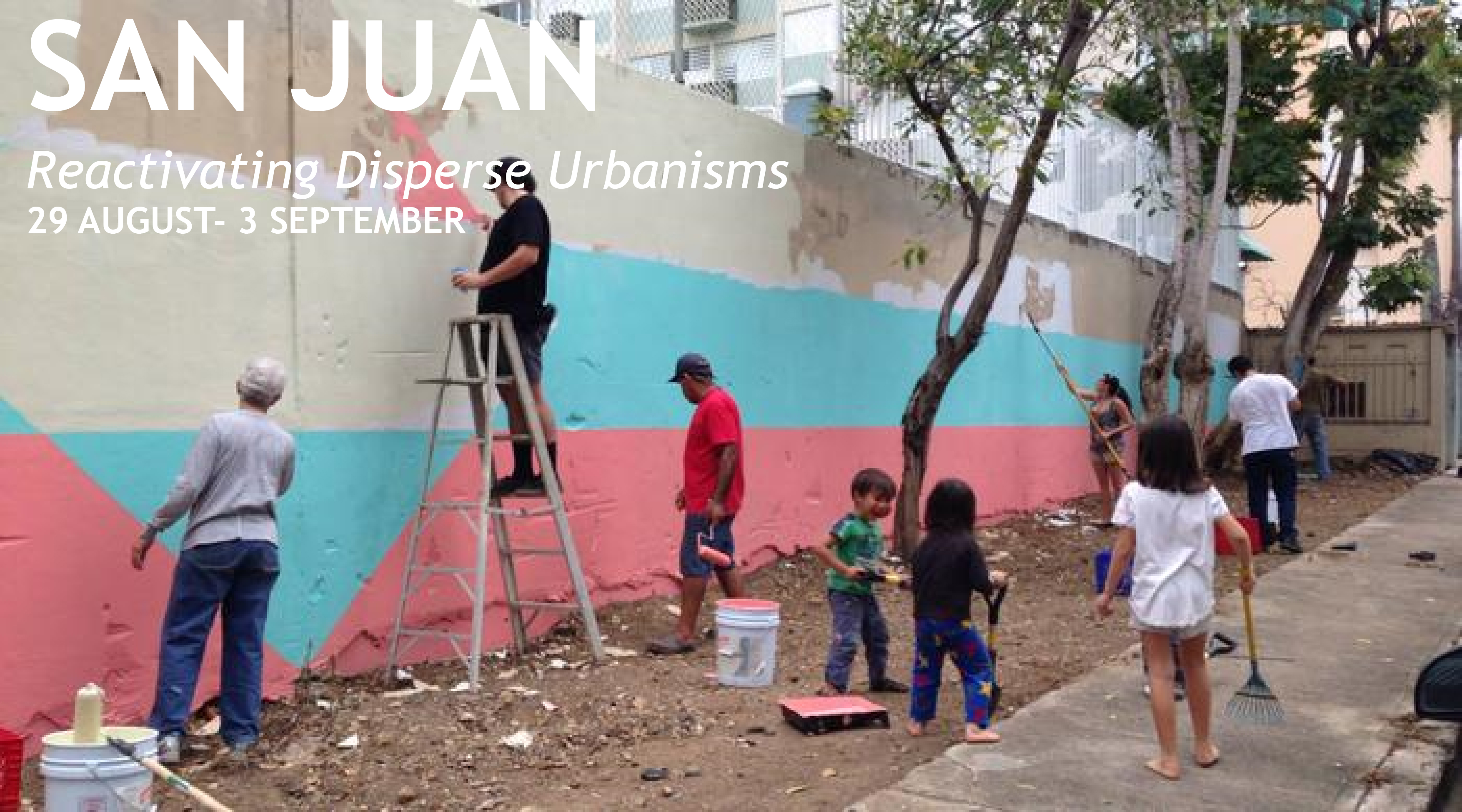
For over 70 years, the Puerto Rican government has implanted an American suburban development model incompatible with the spatial, social and economic realities of the small island context. This has not only promoted the decaying and abandonment of its cities, but has also excluded the possibility of fostering civic engagement and introducing locally-based alternatives to its urban development. In recent years, a new generation of Puerto Ricans have returned to San Juan in hopes of reactivating a more urban lifestyle, where they can enjoy walkable neighbourhoods, transit services and public spaces. Consequently, community-based initiatives have been mushrooming around the city motivated by the desire to make their voices heard, activate abandoned properties and reclaim participation in the urban realm. The DPU summerLab will offer a platform to study the unique methodologies to decipher the gamma of possibilities in which their local action can continue to legitimize new avenues for bottom-up urbanism in Puerto Rico: in a territory facing three times the national poverty rate, it will be imperative for us to leverage our citizens as equal stakeholders in re-constructing and re-envisioning our cities.
5-10 September
Beirut | "Riverside Ecologies and Contested Waterscapes"
In collaboration with:
Dalia Chabarek, Académie Libanaise des Beaux Arts
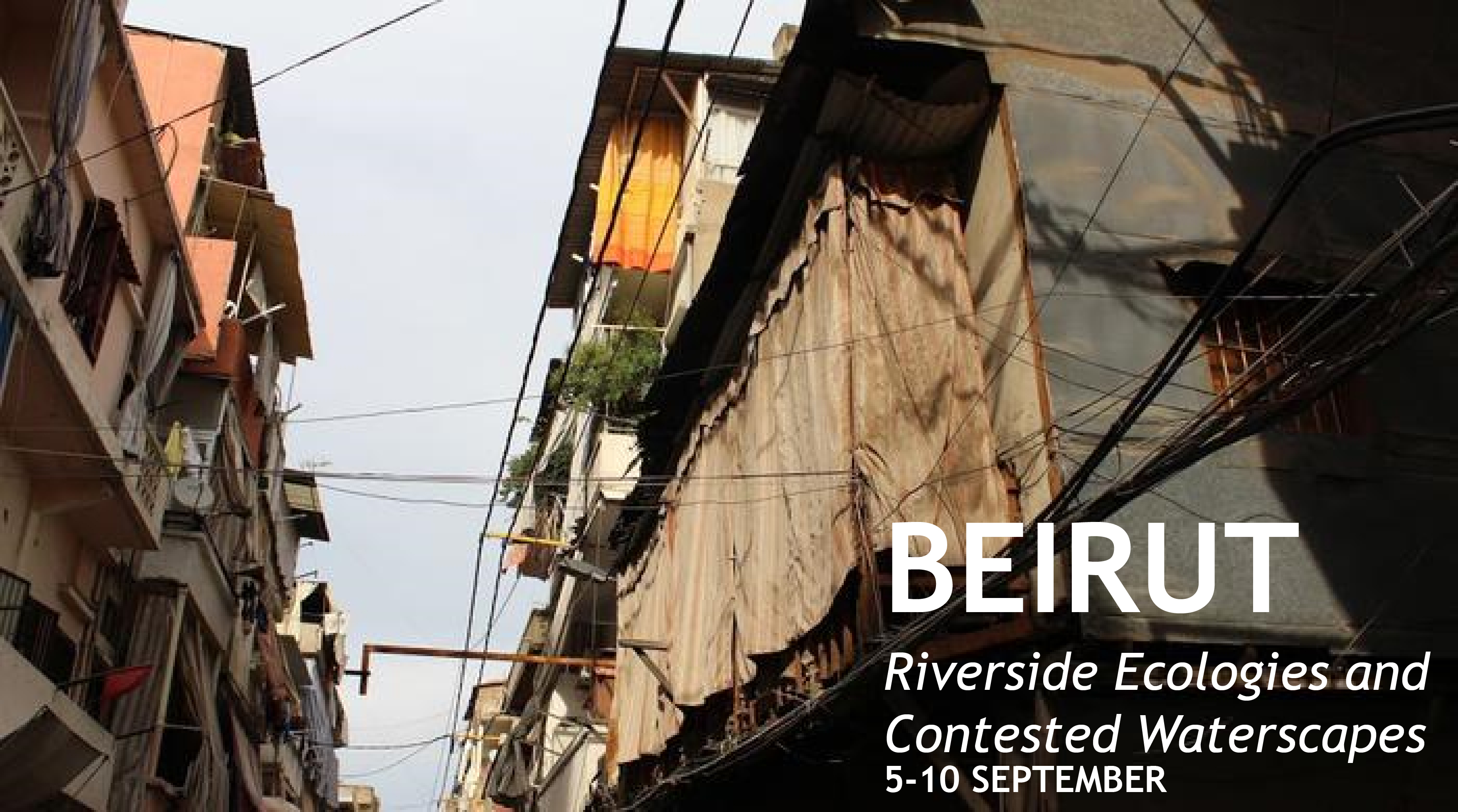
The Beirut River marks the edge of Municipal Beirut. It was once a prosperous river connecting the valleys of the country to the Mediterranean Sea, but its concretisation in 1968 left its waters scarce and converted it into an unintentional open-air sewage in the city. More recently, during the garbage crisis of Beirut, the river served as a temporary dump for the entire city. Along the edges of the Beirut River are culturally eclectic neighbourhoods, currently detached from the city and in dire need of upgrading. The Beirut summerLab 2016 will question the influence of a potentially natural element on its immediate surroundings, and as an opportunity for the whole city. Participants will learn from experts and activists that have been concerned with the river and its environment. They will perform design research on site, construct alternative narratives of the River and develop people-centred strategies for its sustainable future.
5-10 September
Palermo | "Emergent Migrant Topographies"
In collaboration with urbanita , Push
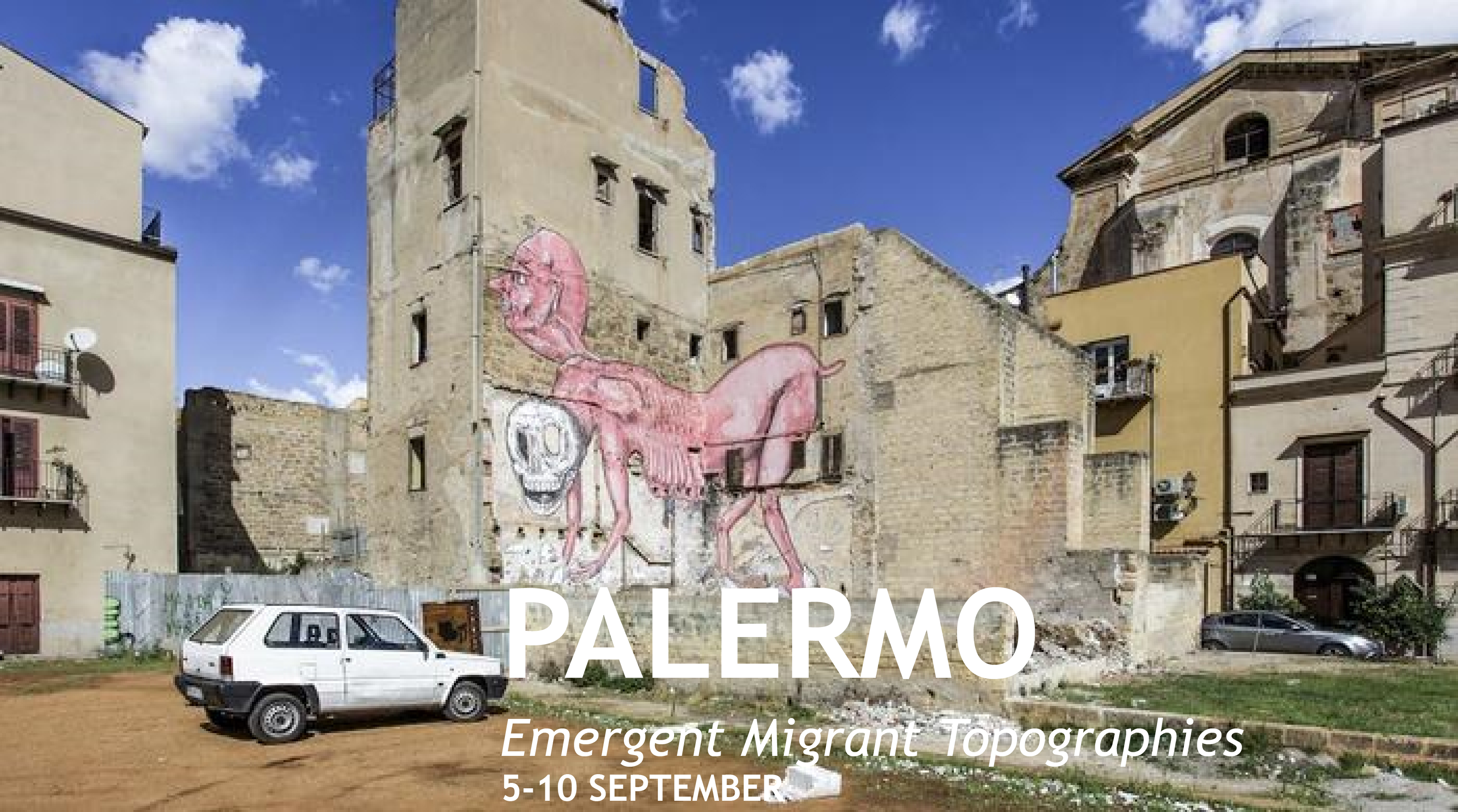
Palermo has a strategic role within the Mediterranean and European context. It has social and economic relations with the African continent and the Middle-East countries and reminiscence of its history as city conquered and dominated by various cultures, populations and religions. It has always been a fundamental commercial exchange junction, and acquired strong inter-cultural features which are still present nowadays and strongly identify and characterise it. Its urban historical centre, with its incredible architectural heritage, is suspended in a general sense of decadence, recently exacerbated by the European financial crisis, and the increasing influx of migrants and refugees.
Participants will work along with urbanita and Push mapping out the actual migrant urbanisms in the historical centre of Palermo while unveiling cases of emergent people-led activities – and questioning to what extent these manage to involve and empower newcomers. By looking at the political, social and economic contexts in which these initiatives unfold, as well as analysing their impact at the urban scale, participants will be asked to highlight new tendencies of urban development, their actors and agency. At the same time, engaging with authorities and investors, the DPU summerLab will seek to make the current projects influential at various levels and scales, and to inspire a new enabling framework for similar experiments to unfold.
12-17 September
Ljubljana | Disputing empty landscapes
In collaboration with: Giulia Carabelli, KUDC3
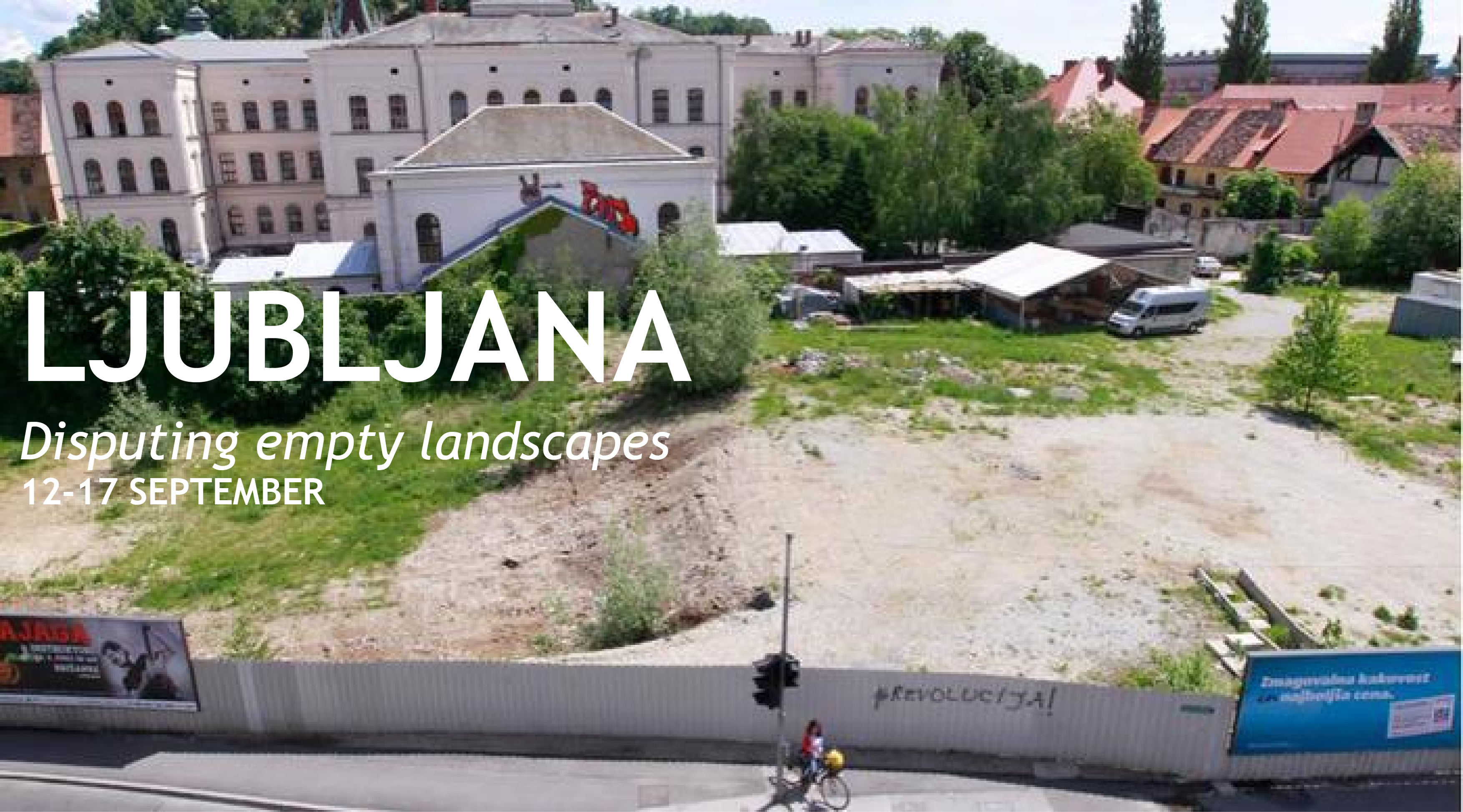
Slovenia is usually referred to as the most developed countries of former Yugoslavia and it was largely spared the atrocities of the conflicts. The 2008 financial crisis dramatically hit the country and especially the construction industry. In 2009, Slovenian witnessed the biggest decline in the European Union. Clear signs of the recession are visible in the fabric of the city: we here want to focus our attention on a series of large construction pits, abandoned in 2008 when the companies in charge of them went into administration. The absence of an appropriate legislation combined with the lack of a vision for these abandoned pits has produced an uncanny landscape of empty (or half-built) plots within the immediate surroundings of the city centre.
The main goal of this summerLab is to explore the potential of these empty spaces and to contribute to an ongoing discussion about what their possible future use. In fact, the city has proposed a series of solutions such as to transform them in temporary parking spaces or commercial advertising spaces (for jumbo posters). Yet, these solutions don’t solve (or even address) the problem of abandoned and neglected construction pits.
Participants will critically investigate opportunities for the temporary use of the sites and design strategies for their long-term (functional and symbolic) sustainable transformation. Strategies might include policy recommendations and proposal for flexible regimes of land tenure. How can we reconnect these abandoned pits to the city, its communities, its uses? How can we plan their future in times of economic uncertainties?
19-24 September
Barcelona | "Conflicting Diversities"
In collaboration with: Master of International Cooperation Sustainable Emergency Architecture (MICSEA), School of Architecture, UIC, Barcelona
Zaida Muxi Martinez, Director of Urbanism, Housing and Public Space, Municipality of Santa Coloma de Gramenet
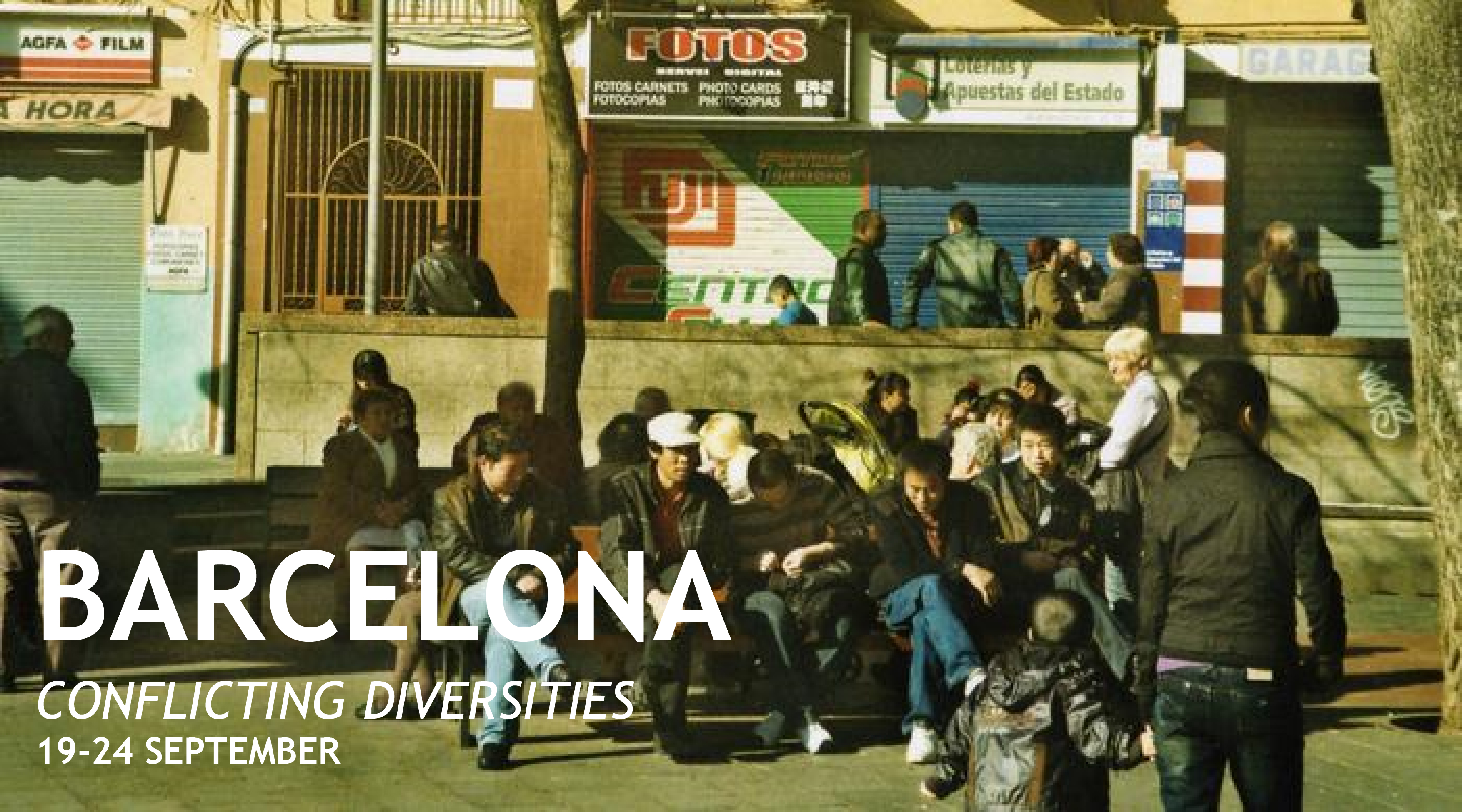
An accelerating influx of immigrants has been shaping contemporary cities in the last decade. The creation of urban strategies for inter-cultural co-existence is imperative. The municipality of Santa Coloma de Gramenet, in the periphery of Barcelona Metropolitan Area, has recently experienced the convergence of newcomers from Latin America, China and the Maghreb region. In this context, the DPU summerLab will explore the spatial implications of the co-existence of diverse cultures in the everyday life of the study area. Such complex reality strengthens the need to acknowledge and assess the intricate relationships between the diverse existing cultures and their use and perception of spaces of civic content. The week-long engagement of international participants with local residents and public authorities will delve into the potentials for intercultural exchanges in the hyper-diverse neighbourhood of Fondo. The driving questions of the workshop will be: a) how do multiple diasporas use and transform urban space? b) how can we map out and interpret socio-spatial interactions and conflicts (or lack thereof)? c) What is the agency of design in triggering opportunities for intercultural integration? Building on and corroborating existing design-based research, the results of the workshop will feed the on-going participatory process for the Municipality Action Plan.
19-23 September
London | "Heritage in Transformation"
In collaboration with: Stephen Kenny (The Baring Trust)
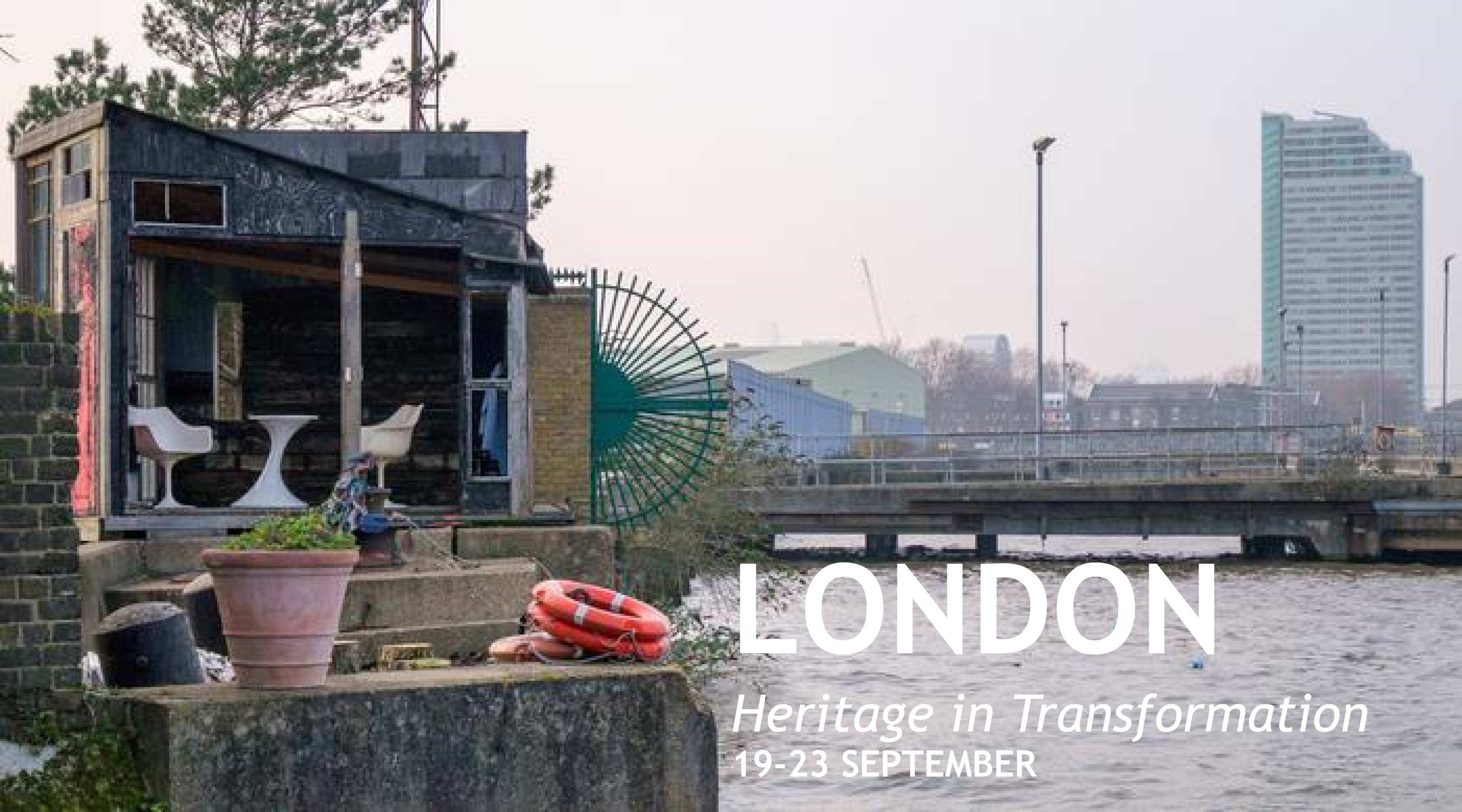
Developing every last stretch of underused, derelict post-industrial Thames river front seems sensible. The ‘value’ that it would create is unrefuted as London experiences a housing shortage. Convoys Wharf in Deptford got the Mayor’s go ahead to regenerate the site and accommodate ten thousand residents in buildings of up to 40 storeys high, overruling Lewisham Council’s previous objections. As Planning is underway in the background that will see this last stretch of river front opportunity south of the river, its time to reflect on who’s and what value is being generated. This year’s summerLab will critically investigate the role of heritage as a driver for re-generating social and environmental value in prime real-estate locations: how should the site’s past history become a symbol of heritage and pride for local residents and new residents who will inhabit the site in future?
Participants will work with The Baring Trust, a local building preservation trust, to explore the current development proposal and critically reflect on the value it is generating and how local community groups, such as the Lenox Project and Save Sayes Court Gardens have mobilised to influence the plans. It will immerse participants into exploring and unravelling the complex layers of political visions by various actors and how, as urban practitioners, they can unpick the contested issues, analyse and reimagine the space innovatively and creatively, while preserving a heritage value that will create a lasting sense of place: how can the plan be enhanced to fundamentally address issues of social and environmental integrity?
Event schedule:
- Start: 08-29-2016
- End: 09-24-2016.
Related articles:




Planum
The Journal of Urbanism
ISSN 1723-0993
owned by
Istituto Nazionale di Urbanistica
published by
Planum Association
ISSN 1723-0993 | Registered at Court of Rome 4/12/2001, num. 514/2001
Web site realized by ChannelWeb & Planum Association | Powered by BEdita 3
